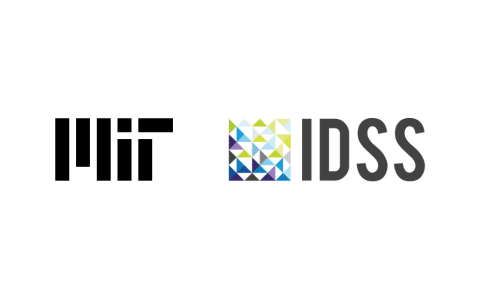Data Science Roles
What you learn in Data Science Roles ?
About this Course
This course will be about what Data Science is, the various stages of a project in data science, the kind of expertise required in data science projects, and as a result, data science is a team effort. A team of experts from various fields. We will also discuss the various roles, responsibilities, and skills required for a successful data science project. Given the roles, responsibilities, and skills needed in Data Science, how to decide which role to get into, and how to fill the skill gap for that role. Once in the role, what needs to be done to get into the Data Scientist role.
Course Outline
This module gives you a clear picture of Data Science and how it is connected to mining, deep learning, and big data.
With this course, you get
Free lifetime access
Learn anytime, anywhere
1.5 Hours
of self-paced video lectures
Success stories
Can Great Learning Academy courses help your career? Our learners tell us how.And thousands more such success stories..
Related Data Science Courses
Popular Upskilling Programs
Explore new and trending free online courses
Relevant Career Paths >
Other Data Science tutorials for you
Data Science Roles
What is Data Science?
Data science is one of the most promising and in-demand job pathways for qualified individuals. Today's effective data professionals recognize that they must go beyond typical data analysis, data mining, and programming skills. Data scientists must grasp the whole data science life cycle and have a level of flexibility and awareness to maximize returns at each stage of the process in order to unearth meaningful intelligence for their organisations.
To extract value from data, data science incorporates several domains, including statistics, scientific methods, AI, and data analysis. Data scientists are those who use data science to create meaningful insights from data acquired from the web, smartphones, customers, sensors, and other sources.
Filtering, aggregating, and modifying data to do sophisticated data analysis are all part of data science. The results can then be reviewed by analytic programmes and data scientists to uncover patterns, allowing business leaders to make more educated decisions.
What is a data scientist?
Data science is a relatively new field. It emerged from the domains of statistics and data mining. The International Council for Science: Committee on Data for Science and Technology first published the Data Science Journal in 2002. By 2008, the term "data scientist" had been coined, and the field had taken off. Since then, there has been a scarcity of data scientists, despite the fact that more colleges and institutions are offering data science degrees.
Developing strategies for studying data, preparing data for analysis, examining, analyzing, and visualizing data, generating models with data using programming languages such as Python and R, and implementing models into apps are some of the responsibilities of a data scientist.
The data scientist is not a lone wolf. In reality, data science is most productive when done in groups. A business analyst may define the problem, a data engineer prepares the data and how it is accessed, an IT architect oversees the underlying processes and infrastructure, and an application developer deploys the models or outputs of the analysis into applications and products, in addition to a data scientist.
Data Science Lifecycle
Data science’s life cycle consists of 5distinct stages, each with its own tasks:
-
Capture: Data Acquisition, Data Entry, Signal Reception, and Data Extraction are the first steps in the data capture process. This stage entails gathering unstructured and structured data in its raw form.
-
Maintain: Data Warehousing, Data Cleansing, Data Staging, Data Processing, and Data Architecture should all be maintained. This stage entails taking the raw data and converting it into a usable format.
-
Process: Data mining, clustering/classification, data modeling, and data summarization are the steps in the process. Data scientists assess the produced data for patterns, ranges, and biases to see if it will be useful in predictive analysis.
-
Analyze: exploratory/confirmatory, predictive/confirmatory, regression, text mining, and qualitative analysis. This is when the lifespan gets really interesting. This stage entails executing a variety of data analytics.
-
Communicate: Data Reporting, Data Visualization, Business Intelligence, and Decision Making are all examples of communication. Analysts present the analyses in clearly legible forms such as charts, graphs, and reports in the last step.
What does a Data Scientist do?
Data scientists have become indispensable assets in practically every firm during the last decade. These professionals are well-rounded, data-driven individuals with advanced technical capabilities who can construct complicated quantitative algorithms to organize and synthesize vast amounts of data in order to answer questions and drive strategy in their company. This is combined with the communication and leadership skills required to provide tangible results to numerous stakeholders throughout a company or organization.
Data scientists must be inquisitive and results-driven, with great industry-specific expertise and communication abilities that enable them to convey highly technical outcomes to non-technical colleagues. To create and analyze algorithms, they have a solid quantitative background in statistics and linear algebra, as well as programming experience with a focus on data warehousing, mining, and modeling.
Why become a Data Scientist?
Since 2016, Glassdoor has named data scientist as one of the top three jobs. Large tech companies are no longer the only ones in need of data scientists as more data becomes more accessible. A shortage of skilled people available to fill open positions is posing a challenge to the expanding need for data science specialists across sectors, large and small.
The demand for data scientists is not expected to decrease in the coming years. Data scientist is one of the most promising careers in 2021, according to LinkedIn, which also lists numerous data science-related talents as the most in-demand by employers.
How Data Science is transforming business?
Organizations are using data science to turn data into a competitive lead by refining products and facilities. Data science and machine learning use cases embrace:
-
Analyze data from call centers to determine customer attrition so that marketing may take action to keep them.
-
Increase efficiency by evaluating traffic patterns, weather conditions, and other factors in order for logistics companies to optimize delivery times and save costs.
-
Analyze medical test data and report symptoms to improve patient diagnoses so doctors can diagnose diseases earlier and treat patients more effectively.
-
Improve the supply chain by anticipating when equipment will fail.
-
Detect financial services fraud by spotting suspicious behavior and unusual actions.
-
Increase sales by providing clients with recommendations based on previous purchases.
Many businesses have prioritized data science and are heavily investing in it. Analytics and business intelligence were ranked as the top differentiating technology for their firms in a recent Gartner study of more than 3,000 CIOs. These technologies are the most strategic for the CIOs polled, and they are investing accordingly.
Applications of Data Science
1. Healthcare : Healthcare companies are using data science to build erudite medical instruments to detect and cure diseases.
2. Gaming : Video and computer games are now being created with the aid of data science and that has taken the gaming experience to the next level.
3. Image Recognition : Identifying patterns in images and detecting objects in an image is one of the most prevalent data science applications.
4. Recommendation Systems : Netflix and Amazon give movie and product endorsements based on what you like to watch, purchase, or browse on their platforms.
5. Logistics : Data Science is used by logistics companies to optimize routes to safeguard faster delivery of products and increase operational efficiency.
6. Fraud Detection: Banking and financial institutions use data science and related algorithms to spot fraudulent transactions.
About This Course
If you want to learn Data Science Roles online, this is an ideal place to kick start with. The presentation is 1.5 hours long and is presented in video format.
For the foreseeable future, data will be the lifeblood of the commercial world. Knowledge is power, and data is actionable knowledge that can determine whether a company succeeds or fails. Companies may now estimate future growth, predict potential challenges, and design informed success strategies by incorporating data science techniques into their operations. With Great Learning's free Data Science course, now is the ideal time to begin your career in data science.
Introduction to Data Science, Introduction to a Strategic Approach to Data Science Roles, Data Science Project Stages, Data Science, a team effort, Data Science roles and responsibilities, Key responsibilities of a Data Scientist, Key characteristics of a Data Scientist, the strategy, Transitioning into Data Science Team, Impact of Corona on Data Science are all covered in detail in the Data Science Roles course curriculum. You will receive a certificate from Great Learning upon completion, which you can use on your LinkedIn page, printed resumes and CVs, and other documents.
Enroll in this free beginner Data Science Roles certification course right away and get started learning.














































